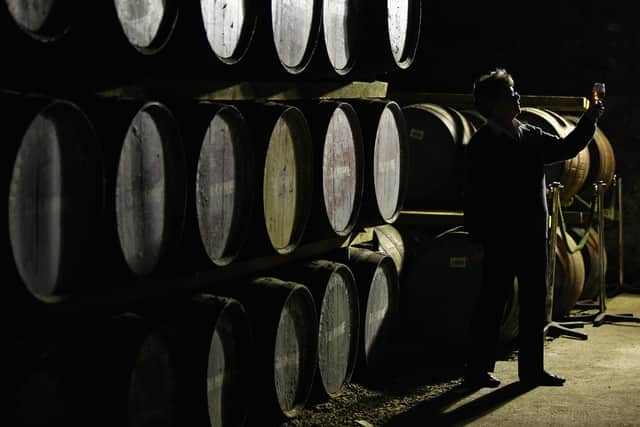Why Scotch whisky industry deserves as much condemnation as celebration – Aveek Bhattacharya
The Scottish Parliament is scheduled to soon hold a debate to “celebrate the value of the Scottish whisky industry” – which doesn’t sound like much of a debate to me. In fairness, there is much to celebrate – from its contribution to Scottish culture to the cold, hard cash it generates. Whisky brings in over £5 billion a year, accounting for 15 per cent of Scottish international exports.
In the interests of debate, though, it’s worth pointing out that there’s another side to the Scotch whisky industry which has been less positive for Scotland: its obstruction of vital public health policies. The most prominent example is minimum unit pricing, the subject of a separate upcoming parliamentary vote, on whether to increase the country’s ‘floor price’ for alcohol from 50p to 65p per unit.
Advertisement
Hide AdAdvertisement
Hide AdThe legislation for minimum pricing was originally passed in 2012. Yet it took six years for the measure to come into effect because of a legal challenge from the Scotch Whisky Association and colleagues. That is despite the fact that the vast majority of whisky is unaffected because it costs more than the minimum price.


Alcohol marketing restrictions
The delay cost lives: the official evaluation of minimum pricing estimates that it reduced deaths by 13 per cent, and hospitalisations by more than 4 per cent. It also weakened effectiveness: because of inflation, the 50p minimum price leaves the cheapest alcohol much cheaper in 2024 money than in 2012 money.
It was a similar story last year when the Scottish Government started mulling marketing restrictions for alcohol. That again drew outrage from the industry. On becoming First Minister, Humza Yousaf sent the proposals “back to the drawing board”, and the government is likely to consult on a (watered down) set of alternatives later this year.
High-end whisky, cheap vodka
That is a pity, because marketing restrictions have been shown to be effective. Norway banned alcohol advertising completely in 1975, which is estimated to have cut alcohol sales by 7 per cent. The irony is that policies to reduce alcohol consumption in Scotland would have a negligible effect on whisky sales – 99 per cent is sold outside the country. Whisky only accounts for 7 per cent of alcohol sold in Scottish shops – barely half as much as vodka, and considerably less than beer and wine.
Yet the whisky industry has used its status and influence to resist policies to curb drinking. In part, this seems to be motivated by a dogmatic objection to government interference. It could also be driven by the fact that large drinks manufacturers produce both high-end whisky and cheap vodka and beer, and use the whisky brand to protect their less distinguished products.
Either way, for all its contribution to Scottish culture and economy, there is also a dark side to the whisky industry. With Scotland suffering an intolerably high death rate from alcohol following the pandemic, effective policies to reduce its availability and affordability are more important than ever. The whisky industry has held back lifesaving policies, and for that reason deserves as much condemnation as celebration.
Aveek Bhattacharya is director of the Social Market Foundation
Comments
Want to join the conversation? Please or to comment on this article.